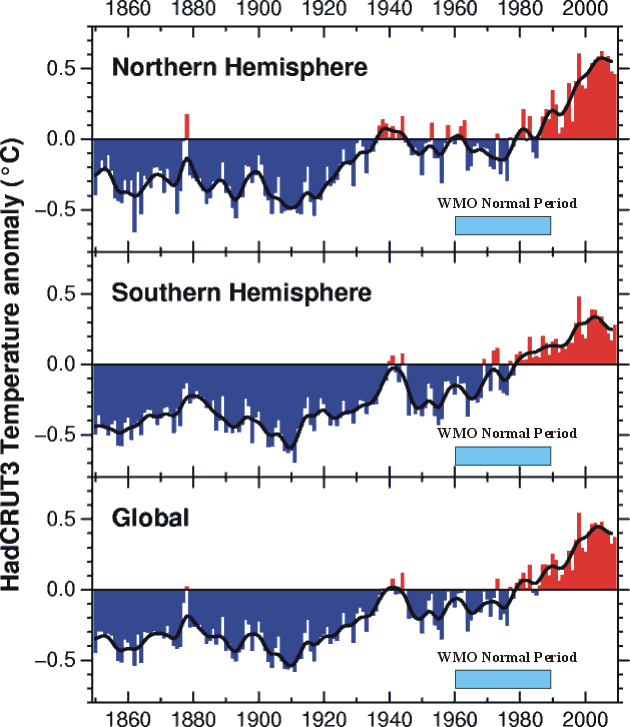Normal climate and normal period
Open Climate4you homepage
The concept of a 'normal climate'
Official
climatic normals cover a 30-year period of record, and are supposed to be
updated through the end of each decade ending in zero (e.g., 1951-1980,
1961-1990, 1971-2000, etc.). The concept of a normal climate goes back to the
first part of the 20th century. At that time, lasting to about 1960, it was
generally believed that for all practical purposes climate could be considered
constant, no matter how obvious year-to-year fluctuations might have been. On
this basis meteorologist then decided to operate with an average or normal
climate, defined by a 30-year period, called the normal period.
Later, people became aware of the fact that climate is not constant, but undergo
variations in itself.
Climatic
normals are best used as a reference base against which climate during the
following decade only can be measured, not over larger time intervals.
Comparison of normals from one 30-year period to normals from another 30-year
period may lead to erroneous conclusions about climatic change. This is due to
changes over the decades in station location, in the instrumentation used, in
how weather observations were made, and in how the various normals were computed.
The differences between normals due to such non-climatic changes may be larger
than the differences due to a true change in climate.
In the
The
need of updated climatologically 30-year statistics was obvious already before the
end on 20th century. However, the former period 1961-1990 still remain the
official normal period defined by the Worlds Meteorological Organisation (WMO). This is
unfortunate; both
for reasons stated above, but also because the period 1961-1990 globally is very much
influenced by the mid 20th century cold period, not entirely typical for the 20th
century.
The
next official WMO normal period is 1991-2020, but before then we probably will
see many countries publishing statistics for the periods 1971-2000 and
1981-2010.
The WMO normal period - or any other normal period adopted - is just a reference time period choosen for administrative purposes, and the term 'normal' does not indicate that climate in this period was more 'normal' than in any other time period.

Global monthly surface air temperature anomaly since 1850 as estimated by Hadley CRUT, with the 1961-1990 WMO normal period indicated. The original HadCRUT diagram without the WMO period inserted can be downloaded by clicking here. The entire series of estimated global monthly surface air temperatures (HadCRUT3) since 1850 may be downloaded from Hadley CRUT by clicking here. HadCRUT diagram downloaded 7 March 2009.